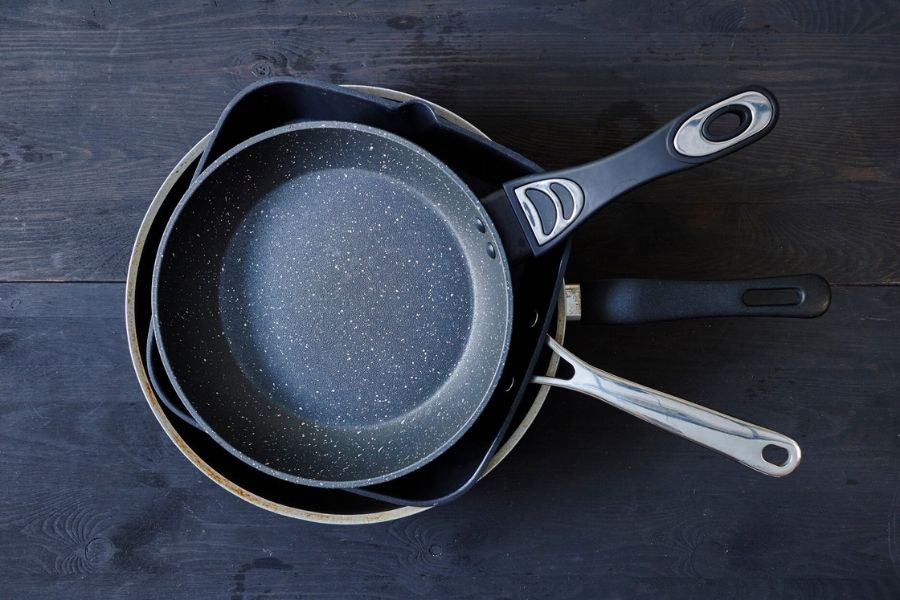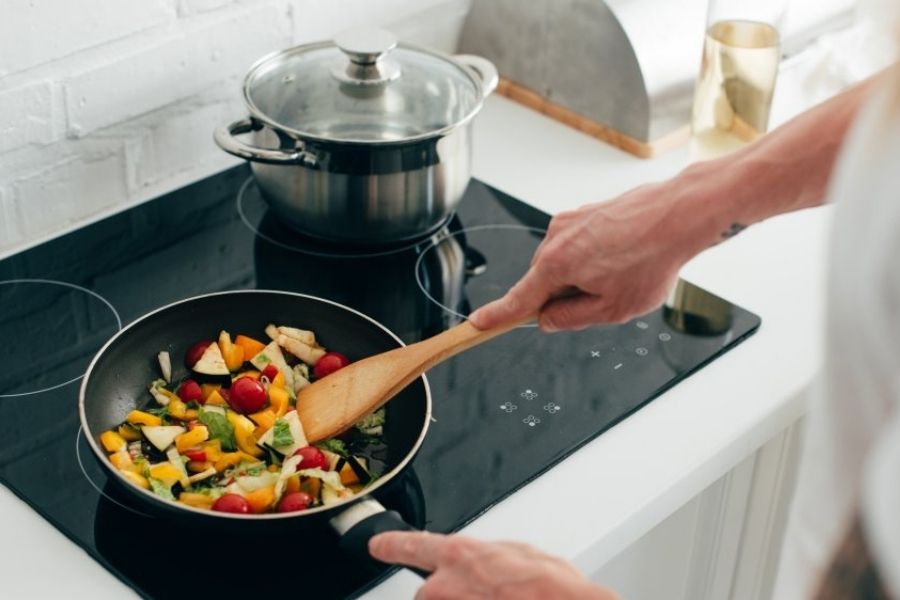Using Teflon coated utensils or non-stick cookware is the go-to choice. The non-stick property distributes the heat uniformly; reduces oil use, which aids in healthy cooking. They are also easy to clean and scratch-resistant when used with non-metal utensils like wooden spoons for cooking. But is it safe or not to use for cooking? Let’s find it out.
What Is Teflon?
Teflon by The Chemours Company is just the brand name; Polytetrafluoroethylene (PTFE) is the versatile product used in many industries and by NASA in their space crafts. It is most commonly used as the coating for the utensil used as non-stick cookware. PTFE is a fluorocarbon-based polymer with multiple carbon-fluorine bonds of tetrafluoroethylene and is hydrophobic and high heat resistance.
The surface of the utensil is sandblasted so that it becomes rough. It favors good adherence. Then multiple layers of PTFE are sprayed or rolled on the utensil. After each layer, the utensil is baked at high temperatures to aid PTFE’s mechanical grip on the surface. It is then cooled, and the next layer is sprayed. This process continues until the desired thickness of the layers is achieved.
Properties About Teflon Coated Utensils

Teflon coating has properties such as heat resistance up to 200°C/300°C or 392°F/570°F, cold, water, and chemical resistance. Its non-stick property produces very low friction and is durable. Teflon coated utensil quality depends on the number and thickness of the layers, proper adhesion. Better the quality, more is the utensil’s durability; less is the possibility of peeling and flaking of the layers and the non-stick properties to last longer.
Teflon And Perfluorooctanoic Acid (PFOA)
Previously, Perfluorooctanoic acid (PFOA) is a chemical that was used in the making of Teflon. This PFOA gave rise to some health concerns as it remains in the environment and the human body for a longer duration. However, the PFOA is not used in extremely small amounts and destroyed when exposed to heat during the manufacturing process, reducing the health risk, and making the Teflon coated utensils safe for use.
Using Teflon Coated Utensils

It is very important to follow instructions while using Teflon coated utensils. It is inadvisable to heat the empty non-stick utensil beyond the resistant temperature (200°C/300°C or 392°F/570°F) as it starts to deteriorate and further continued heating starts to decompose it above 350°C or 662°F. The by-products produced after the decomposition, which are in the form of fumes, on inhalation may produce flu-like symptoms, cough, and sore throat.
It is mandatory to use utensils, especially spoons, which will not produce scratch on the utensil surface. It may lead to the leaching of some chemicals in the food causing harmful reactions with the food and putting the person at health risk. Also, if you see peeling and flaking of the non-stick coating on the utensil, immediately replace it with a new one as you might accidentally swallow a chip and get sick. Be careful while cleaning and washing the utensil. It should not be washed with a harsh, pointed metal scrub, as it may produce scratches; instead, use a soft sponge.
Take Precautions While Using Teflon Coated Utensils

- Limit the use of acidic food like tomatoes and lemons as they tend to bond and loosen a shallow non-stick coating and promote flaking.
- Keep checking the temperature while cooking food like meat, chicken, etc.
- Avoid extreme temperature change.
- Preseason the utensils by rinsing and completely drying, putting a teaspoon of oil on a paper towel, and rubbing it on the surface.
- Never use a commercial oil spray.
- Store the utensils properly to avoid scratches. (Can place a towel or a sponge between the two.)
- Do not wash in the dishwasher. (Hand washing is the best)
- Use soft detergent for cleaning.
- Don’t store food in the pan.
Read Also: 4 Myths And Facts About Microwave Ovens







